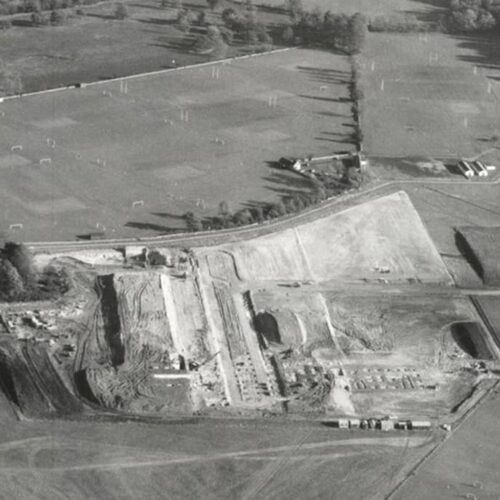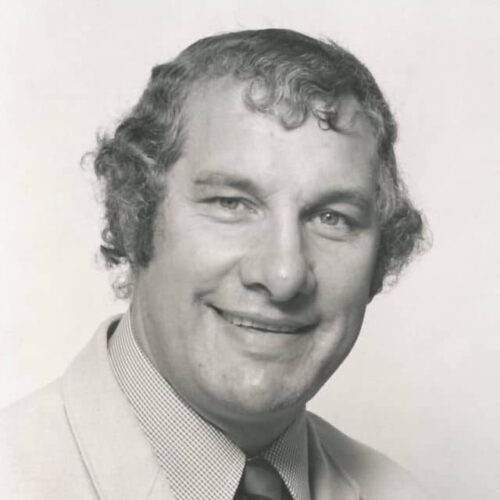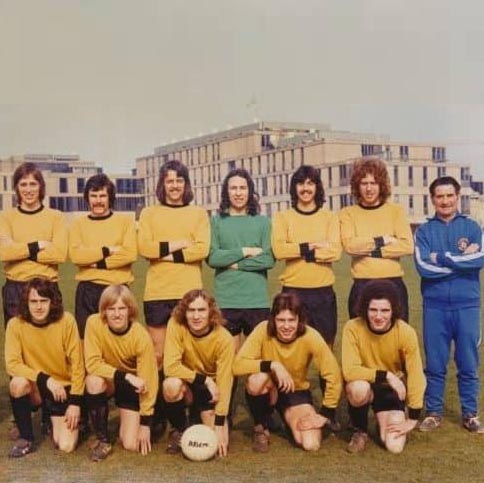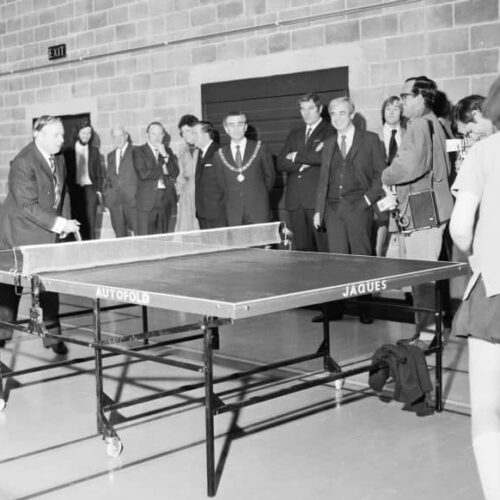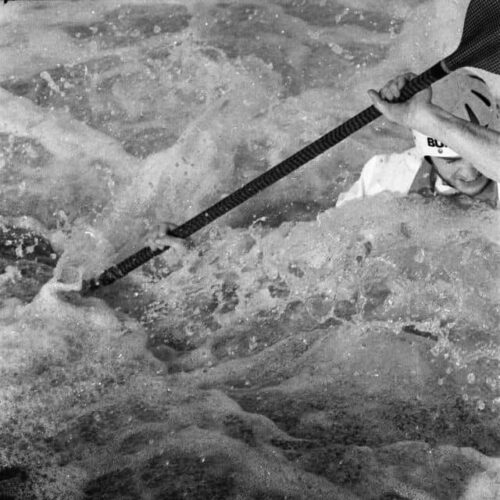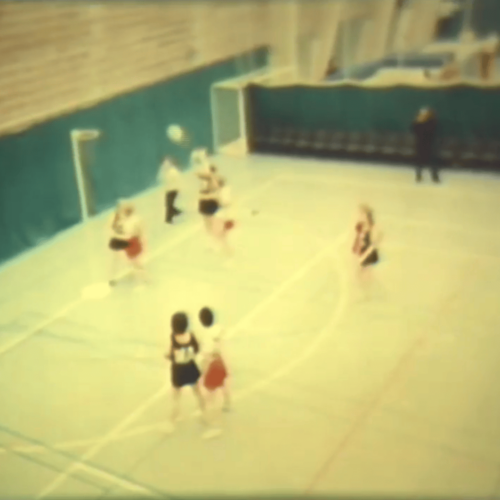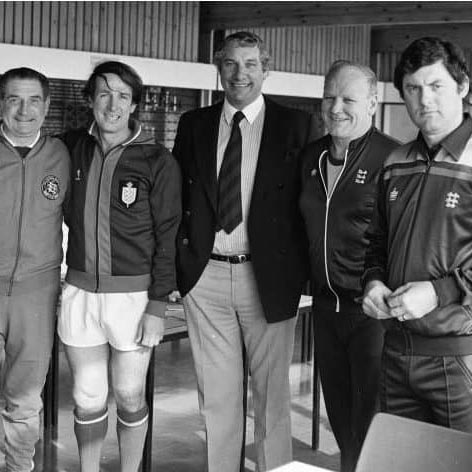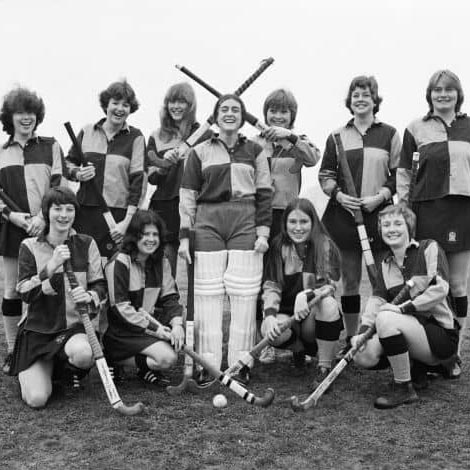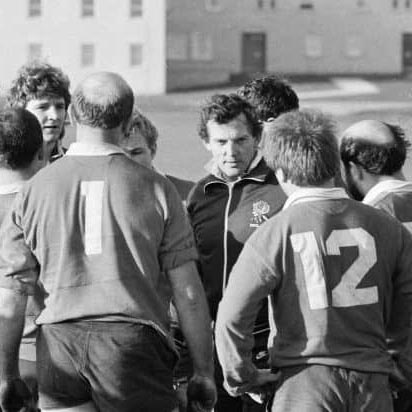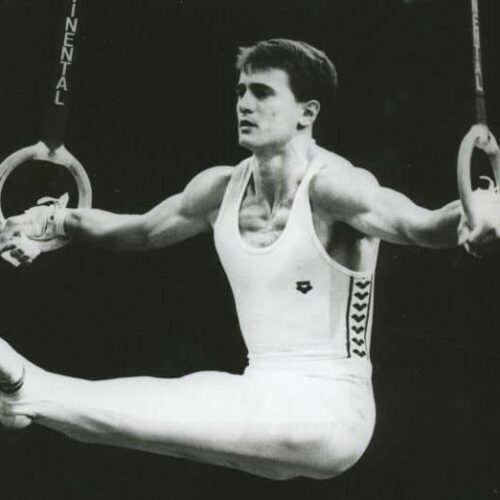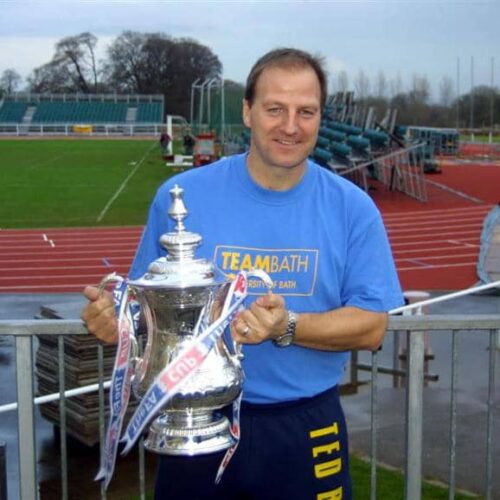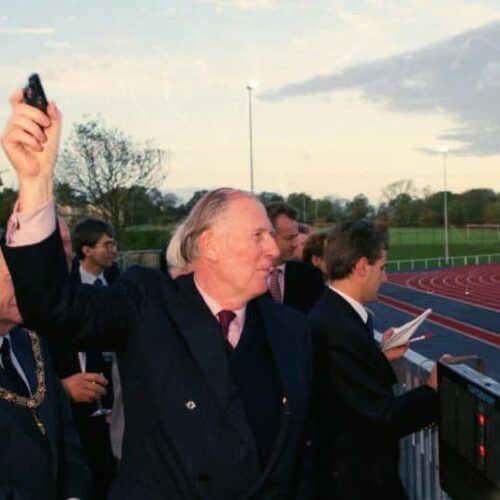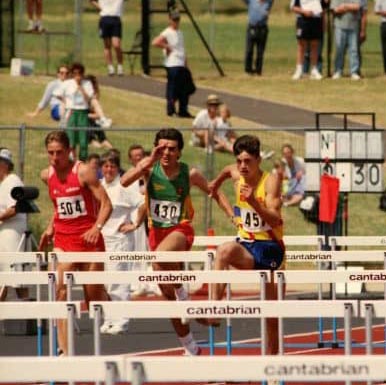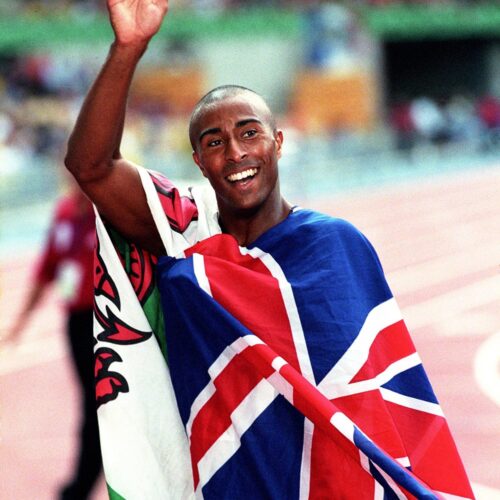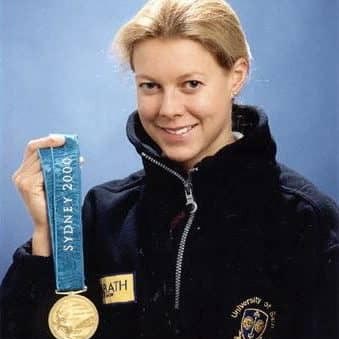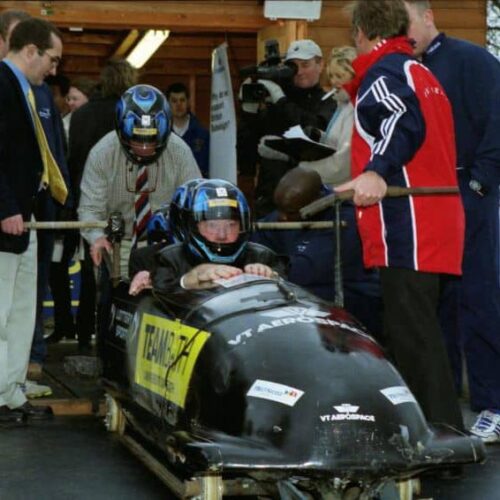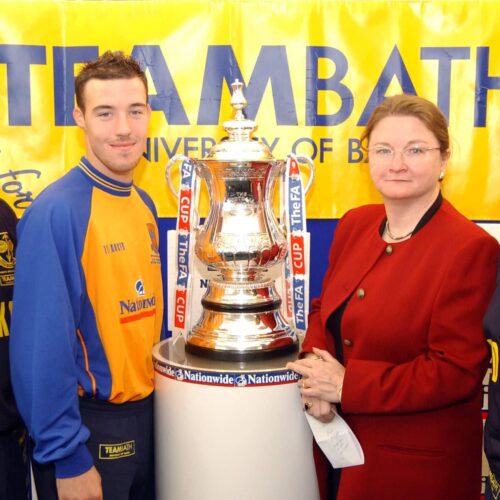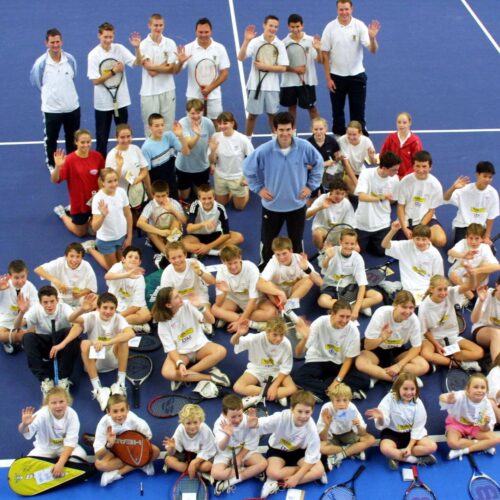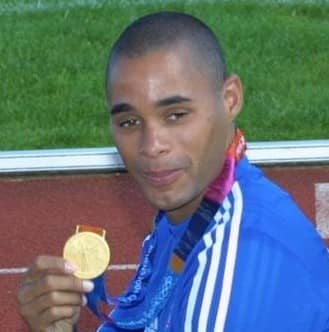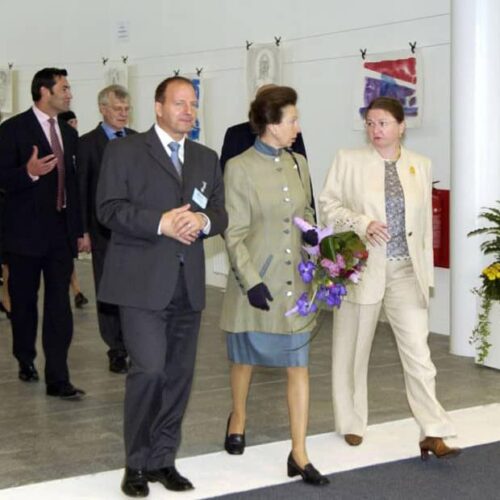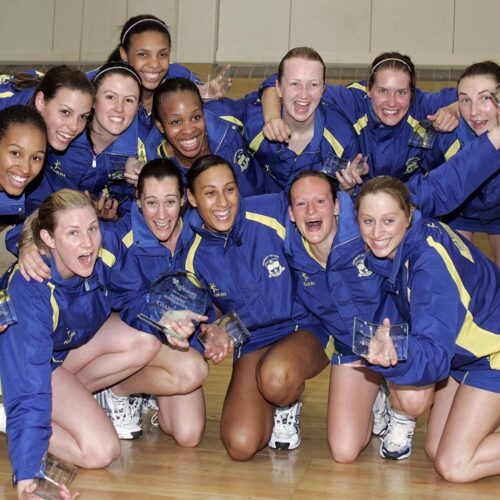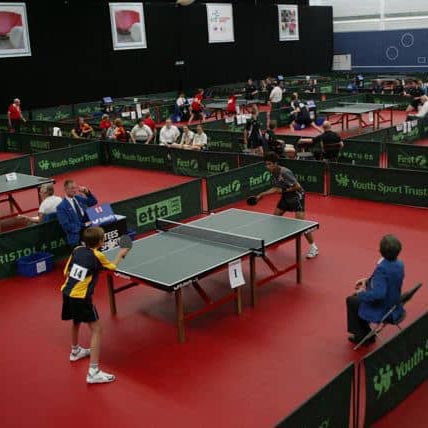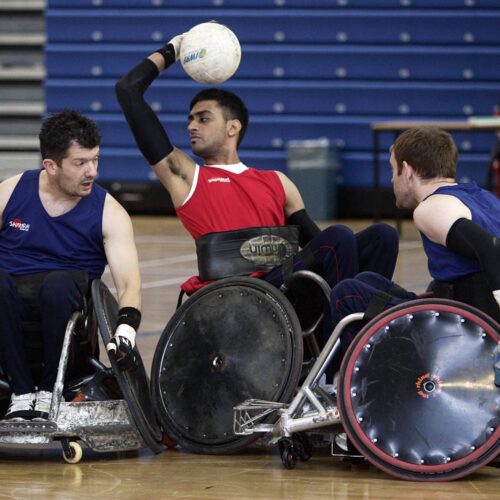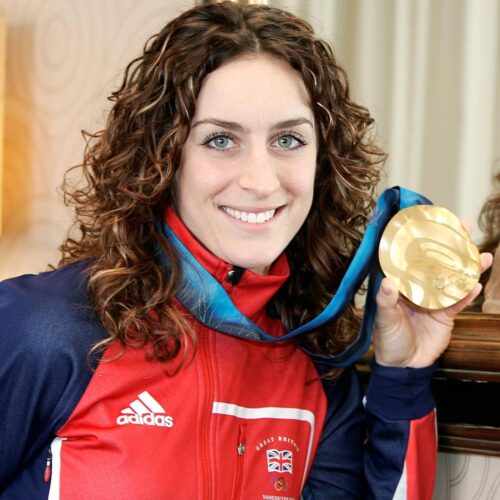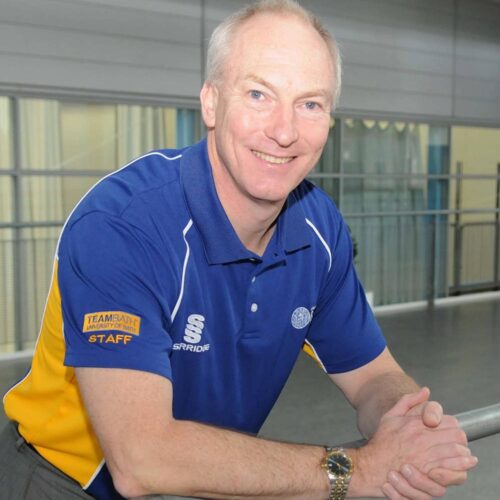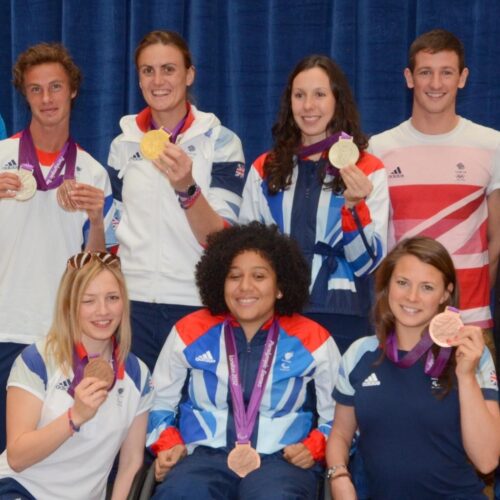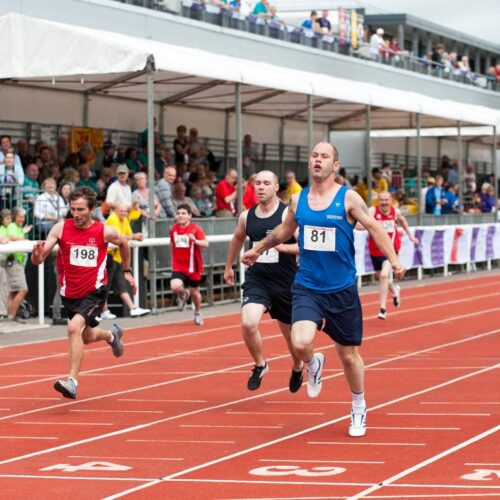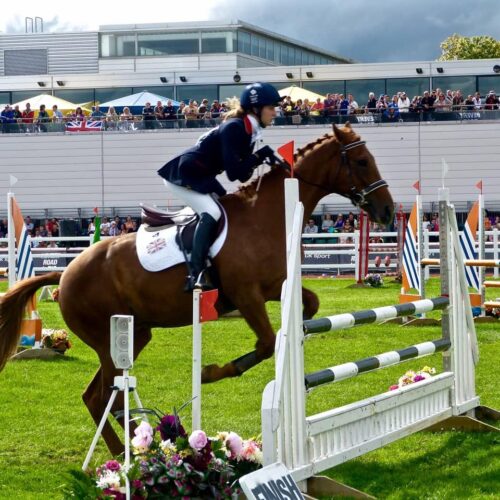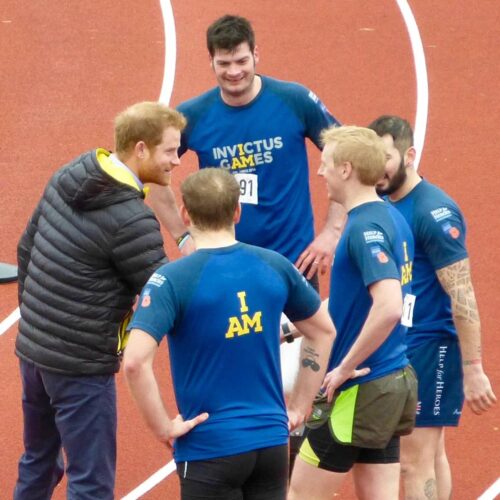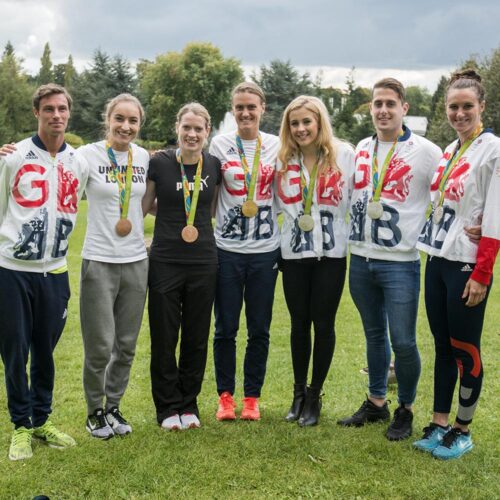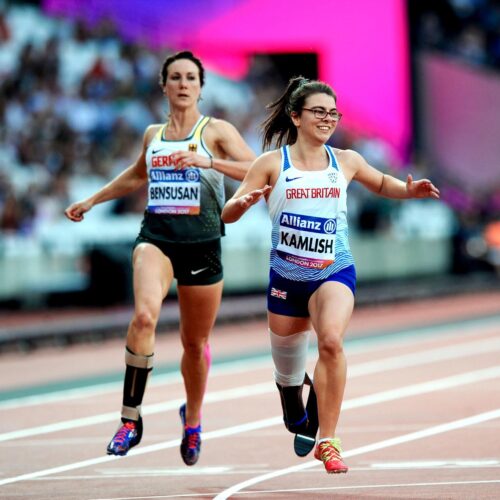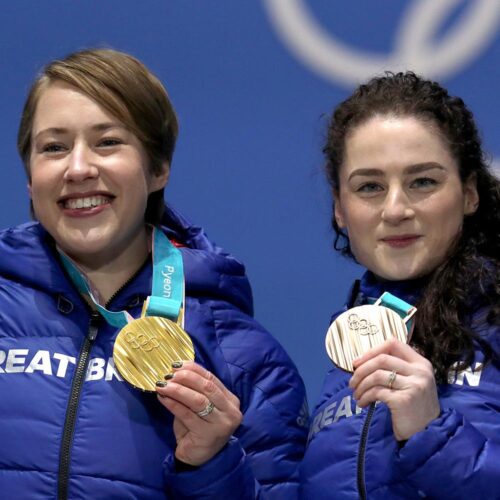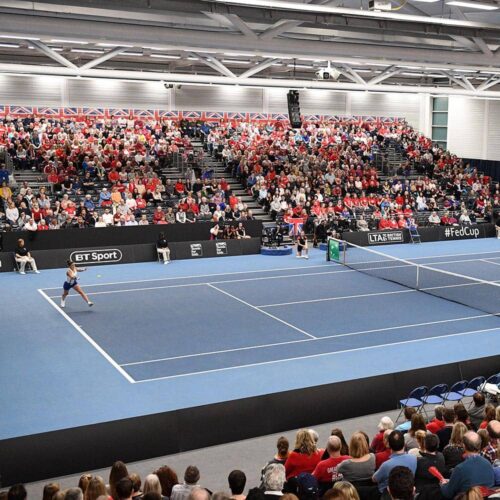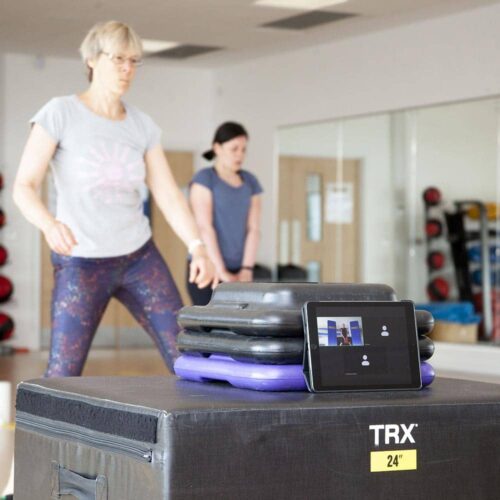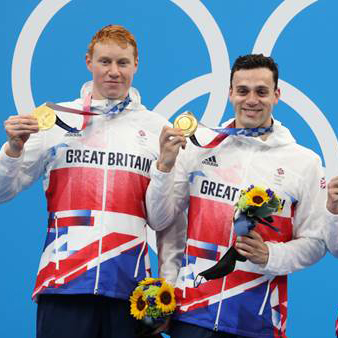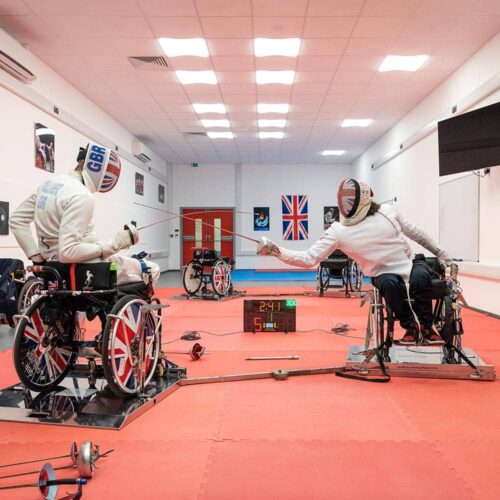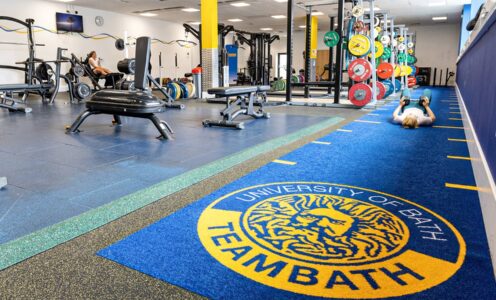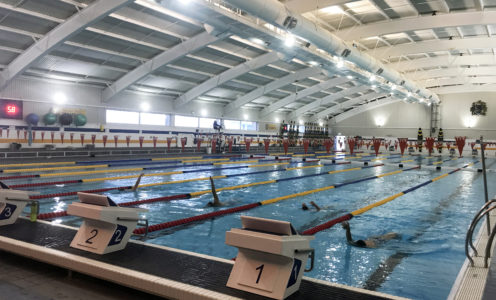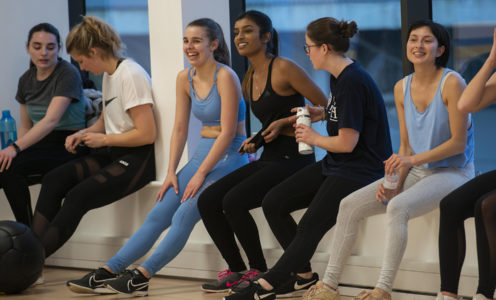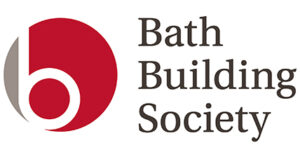Our history
Since the University of Bath was founded in 1966, it has enjoyed a special relationship with sport with its facilities, staff and the opportunities they provide playing an integral part in the shaping of sport regionally, nationally and internationally. Here we celebrate some of the milestone achievements of the past six decades…
1966
University of Bath is granted Royal Charter status on 25th October 1966 but there are no sport facilities onsite…
1968
The University’s first Olympian makes a splash as student David Hembrow swims for Great Britain at the 1968 Games in Mexico City.
1969
The first annual Blues Awards are presented, recognising sporting achievement amongst students.
1971
As construction begins on new sports facilities at Claverton Down, Dr Tom Hudson – a former Olympic modern pentathlete – is appointed as the University’s first Director of Physical Education. He went on to serve in the role for 20 years, overseeing a transformation of sport at the University.
1972
Former Wales international Ivor Powell is appointed as the University’s football coach – he famously held the role for 38 years, retiring aged 93.
1974
Denis Howell MP returns to the University to officially open the new sports facilities, including a 25m swimming pool and the sports hall now known as the Founders Hall. Student involvement in sport – overseen by the Athletic Union, established in the late 1960s – begins to expand rapidly and by 1975 a third of all students are participating in sporting activities of some kind.
1976
Bath becomes the first UK university to establish sports scholarships, with British canoe slalom champion Martyn Hedges the first recipient.
1977
The University’s reputation as a top sporting venue grows as students from across the country compete in the national badminton, hockey, lacrosse, netball, squash and table tennis tournaments, as well as the Women’s Inter-University Winter Competitions.
1982
England football manager Ron Greenwood takes time out from World Cup preparations to speak on a football panel at the University.
1985
Hundreds of students from across the country head to Claverton Down as the University hosts the UAU (now BUCS) Finals Weekend for the first time.
1987
England Rugby train at the University for the first time. The men were to be regular visitors from 2007-2009 and returned again during the 2016 Six Nations, while the women’s squad hosted month-long training camps at the Sports Training Village in 2021 and 2022.
1990
A golden moment as sporting scholar James May wins the gymnastics vault title for England at the Commonwealth Games in New Zealand.
1992
Ged Roddy succeeds the retiring Dr Tom Hudson as Director of Sports Development & Recreation, overseeing an expansion of sport that leads to Bath becoming one of the UK’s top sporting universities.
1994
Sir Roger Bannister returns to his boyhood city to officially opens a new athletics track and all-weather pitches that are built in preparation for the University hosting the European Youth Olympic Days.
1995
The University hosts the European Youth Olympic Days and acts as an Olympic Village for nearly 2,500 athletes, aged between 12 and 17, from more than 45 European countries.
1997
Phase 1 build of the Sports Training Village is completed, with a 50m pool and four indoor tennis courts being added to the existing athletics track, eight outdoor tennis courts and hockey astro pitch.
1998
Pentathlon GB establish what will go on to be a world-leading National Training Centre at the Sports Training Village. Triathlete Simon Lessing, who trains at the University, wins his fifth International Triathlon Union World title.
1999
Athlete Colin Jackson, coached by Malcolm Arnold, wins the World 110m hurdles title while, back home, a Sports Performance course specifically targeted at high-performance student-athletes is introduced, later to become a Foundation Degree.
2000
History is made as Pentathlon GB’s Stephanie Cook becomes the first University-based Olympic champion by winning modern pentathlon gold – swimmers Sascha Kindred and Matt Walker also claim Paralympic titles in Sydney.
2001
Lord Glentoran, British Bobsleigh gold medalist in 1964, officially opens the bobsleigh and skeleton push-start track at the University of Bath. Renovated and improved in 2015, it remains the only one of its kind in the UK and has been home to a host of Olympic and World Champions.
2002
Alex Coomber wins skeleton bronze at the 2002 Winter Olympic Games in Salt Lake City, while Team Bath FC become the first University team to reach the first round proper of the FA Cup since 1880.
2003
British tennis star Tim Henman officially opens a LTA Tennis Academy at the Sports Training Village. Team Bath Tribe, our youth and schools sports programme, is officially launched by Team Bath football coach Andy Tillson and his son, Jordan.
2004
HRH The Princess Royal officially opens the newly-extended and refurbished Sports Training Village, while Bath Bullet Jason Gardener wins men’s 4x100m relay Olympic gold in Athens.
2006
Team Bath Netball, under the guidance of Lyn Gunson, win the inaugural Superleague title – they went on to claim four more titles in the next seven years.
2008
Some 1,500 young athletes compete in the UK School Games at the Sports Training Village.
2009
Paralympics GB stages its first preparation camp at the STV ahead of the London 2012 Games. Two more large-scale camps take place in 2010 and 2011 before the University hosts the final preparations for British athletes prior to the Games themselves in August 2012.
2010
Sports Performance student Amy Williams slides into the record books as she wins women’s skeleton gold at the Vancouver Olympic Winter Games. Stephen Baddeley becomes the University’s third Director of Sport, succeeding Ged Roddy.
2012
The Olympic Torch Relay passes through the University en route to London 2012. Thirty-one athletes compete at the Olympic Games, including silver-medallist students Michael Jamieson (swimming) and Samantha Murray (modern pentathlon). Graduate Heather Stanning wins rowing gold along with Helen Glover. Paul Blake, Katrina Hart, Ben Rushgrove and Liz Johnson are also medalists at the Paraylmpic Games.
2013
The University is the main host venue for the Special Olympics, with more than 1,700 athletes competing across 12 sports.
2014
British Skeleton’s Lizzy Yarnold succeeds Amy Williams as Olympic women’s skeleton champion and Mathematics graduate Kelly Gallagher makes history at the Sochi 2014 Paralympic Winter Games by winning the visually-impaired Alpine Skiing Super G event with guide Charlotte Evans – Britain’s first-ever gold won on snow.
2015
The Rugby World Cup comes to Bath – first the trophy itself, then the Australian national team as they train here during the competition. August saw the STV transformed as it hosted the Modern Pentathlon European Championships, a qualifying event for the Rio 2016 Olympic Games. The swimming takes place in the London 2012 Legacy Pool, officially opened in June by Michael Jamieson.
2016
A royal start to the University’s 50th anniversary year as HRH Prince Harry attends trials for the Invictus Games – he returns in 2017 and 2018, joined by future wife Meghan Markle on the latter occasion. Twenty University-based athletes compete at the Rio 2016 Olympic and Paralympic Games, winning an outstanding 12 medals between them including Paralympic T36 400m gold for Paul Blake.
2017
Sophie Kamlish wins T44 100m gold and Sports Performance graduate Danny Talbot anchors GB to the 4x100m title during a successful London 2017 World Athletics Championships for Bath-based athletes.
2018
Lizzy Yarnold retains her women’s skeleton title and there are bronze medals for Laura Deas and University of Bath PhD student Dom Parsons as British Skeleton excel at the PyeongChang 2018 Winter Olympic Games. There is more success at the Gold Coast 2018 Commonwealth Games in Australia, with a 17-medal haul for University-based sportspeople including a historic netball gold with England for Team Bath’s Eboni Usoro-Brown and Kadeen Corbin. A golden year continues in September as Jamie Cooke and Vicky Holland are crowned as World Champions, in modern pentathlon and triathlon respectively, within 48 hours of each other.
2019
A two-storey £3.5million gym extension is officially opened by Olympic Champion Amy Williams and Rugby World Cup winner Lewis Moody. The Sports Training Village hosts the first UK-based Fed Cup women’s team tennis tournament for 26 years along with the Modern Pentathlon European Championships for a second time in four years.
2020
Staff at the Sports Training Village prove resourceful and resilient as the Covid pandemic provokes several closures and many operational adaptations to allow customers and athletes, including those training for Tokyo 2020, to access activities with safety in mind.
2021
They may have been delayed until 2021 but the Tokyo 2020 Olympic and Paralympic Games were truly worth the wait as sportspeople who train or studied at the University of Bath brought home an incredible 21 medals – 11 of them gold. Mechanical Engineering student Tom Dean wins two of the titles during an incredible Games for British Swimming Performance Centre Bath athletes, with James Guy (2), Matt Richards, Freya Anderson and Calum Jarvis also bringing home gold. Pentathlon GB’s Joe Choong and Kate French make history by winning the men’s and women’s modern pentathlon titles respectively, and Piers Gilliver claims wheelchair fencing gold.
2022
The University of Bath hosts the Jamaica bobsleigh team, England Rugby women and South Africa netball squad as they prepare for the Beijing 2022 Winter Olympic Games, Rugby World Cup and Birmingham 2022 Commonwealth Games respectively. The latter event sees athletes who train, study or studied at the University win a fantastic 33 medals between them– seven gold, 17 silver and nine bronze. A new Wheelchair Fencing National Training Centre is opened at the Sports Training Village in December.
2023
A historic campaign see the British Bobsleigh and Skeleton Association athletes who train at the University win 80 medals including, at the World Championships, men’s skeleton gold for Matt Weston and silver in the four-man bobsleigh for Brad Hall, Arran Gulliver, Taylor Lawrence and Greg Cackett – Britain’s first World Championships medal in the event since 1939.

